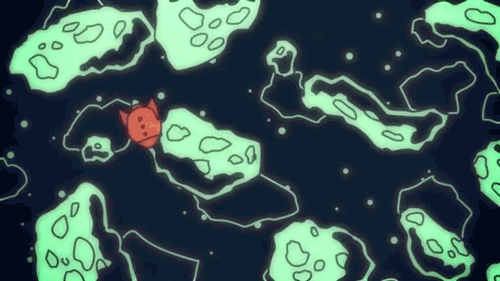The Astronaut Is Rescued after Three Days Floating Alone in Space
They tend to his body first. They are gagging but try to hide it out of respect for the astronaut’s feelings. They clean him, they comfort him, and they bring him back down into the embrace of gravity. He is tested, he is assessed, he is assayed. Someone notices the vacancy that invades his expressions. He is given to the care of a therapist, who has a small hitch to the side of her smile. He cannot help staring at it, at what seems caught there, unspoken.
The therapist tries to get him to tell her about the blackness, the infinite yawn of space, the chasm, the abyss—all the words she has for things that are too large to be taken into the body, swallowed, allowed to live alongside his churning human organs.
He wants to explain.
Once, when he was young, his parents drove him many hours to the ocean. When they got close, he watched the water, a flat metallic sheen reaching out to meet a pearled-over sky. He wanted to slip between those two sheets of ivory silk. When the family finally hauled their chairs and towels to the sand, the water was no longer a pearl but a shifting, rust-colored thing, heavy with seaweed, and the sky slammed white at a sharp horizon. It reminded him of a painting he had seen on a school trip to the art museum: two canvases, one painted the off-white of the sea-sky, the other the deep bluish green of the water, mounted directly on top of each other, pressed together along a single edge, the colors never meeting, never able to cross the gap between them. The whole thing was one piece of art, called Sea Painting I.
The astronaut’s classmates had mocked it: We could do that!
But we can’t, he wanted to tell this therapist. We can’t force those canvasses to meet, we can’t force that line to dissolve, we cannot be held between the sea and the sky. We can only stare, our eyes as wide as we can make them, held prisoner in the crush of our bodies, which will do, he thinks, focused on her face, what they want to do.
He drives home from the appointment; a bright Houston sun holds him in its fist. It glints, sharp and white, off the car in front of him. It flashes over his vision. It obliterates his sight.
There you are, he thinks. There you are.
Rebecca Orchard (@BeccaOrchard) studied classical music at the Peabody Conservatory before baking professionally for seven years. She now has her MFA in Fiction from Bowling Green State University and is currently in the PhD program at Florida State University. Her work has appeared in Passages North, Exposition Review, Tammy, The Baltimore Review, and elsewhere. Her work on the Voyager Golden Record has been profiled in The Guardian, BBC World Service NewsHour, and Atlas Obscura. Much of her work can be read at rebeccaorchardfiction.com.

